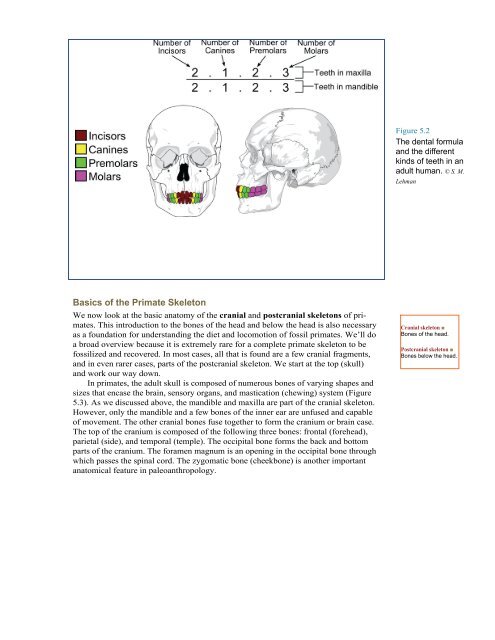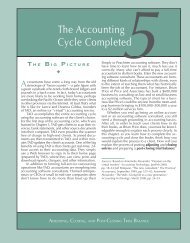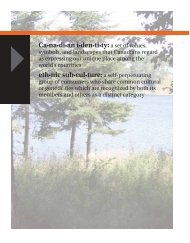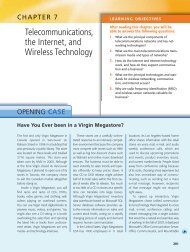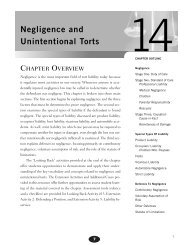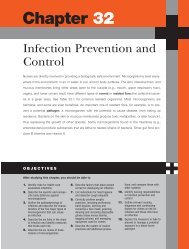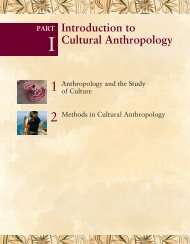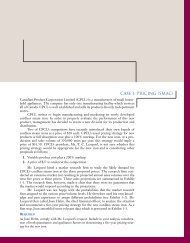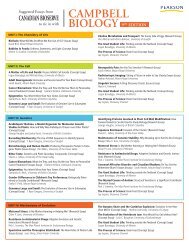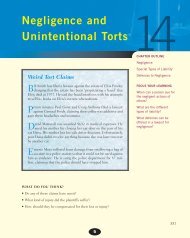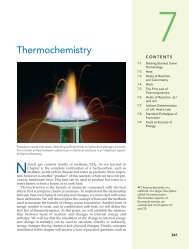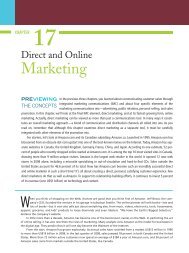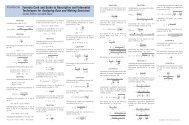Primate Origin
Primate Origin
Primate Origin
Create successful ePaper yourself
Turn your PDF publications into a flip-book with our unique Google optimized e-Paper software.
Basics of the <strong>Primate</strong> Skeleton<br />
We now look at the basic anatomy of the cranial and postcranial skeletons of primates.<br />
This introduction to the bones of the head and below the head is also necessary<br />
as a foundation for understanding the diet and locomotion of fossil primates. We’ll do<br />
a broad overview because it is extremely rare for a complete primate skeleton to be<br />
fossilized and recovered. In most cases, all that is found are a few cranial fragments,<br />
and in even rarer cases, parts of the postcranial skeleton. We start at the top (skull)<br />
and work our way down.<br />
In primates, the adult skull is composed of numerous bones of varying shapes and<br />
sizes that encase the brain, sensory organs, and mastication (chewing) system (Figure<br />
5.3). As we discussed above, the mandible and maxilla are part of the cranial skeleton.<br />
However, only the mandible and a few bones of the inner ear are unfused and capable<br />
of movement. The other cranial bones fuse together to form the cranium or brain case.<br />
The top of the cranium is composed of the following three bones: frontal (forehead),<br />
parietal (side), and temporal (temple). The occipital bone forms the back and bottom<br />
parts of the cranium. The foramen magnum is an opening in the occipital bone through<br />
which passes the spinal cord. The zygomatic bone (cheekbone) is another important<br />
anatomical feature in paleoanthropology.<br />
Figure 5.2<br />
The dental formula<br />
and the different<br />
kinds of teeth in an<br />
adult human. © S. M.<br />
Lehman<br />
Cranial skeleton ■<br />
Bones of the head.<br />
Postcranial skeleton ■<br />
Bones below the head.


